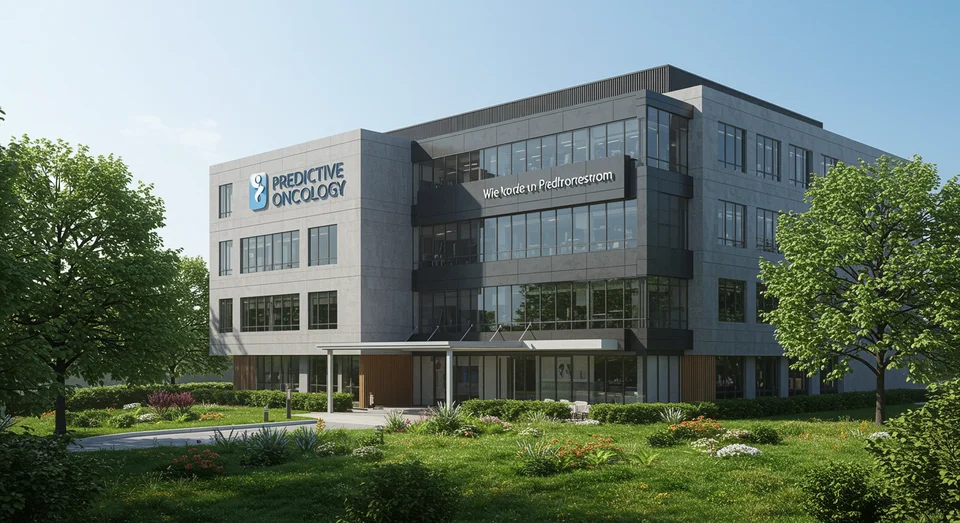Predictive Oncology Unveils AI-Driven Platform to Revive Abandoned Cancer Drugs
189 views
Predictive Oncology Inc. has unveiled a groundbreaking approach to drug discovery, breathing new life into abandoned oncology compounds and redefining possibilities in cancer treatment. With the potent fusion of artificial intelligence and biomarker identification, the company is charting a course toward innovation that could alter the landscape of therapeutic options for some of the most challenging cancer types. At the heart of this transformative effort is PEDAL, Predictive Oncology's AI-powered platform, which boasts an impressive 92% accuracy rate in predicting tumor responses to drug compounds, backed by a biobank of over 150,000 patient-derived tumor samples.

Reviving Hope: AI and Abandoned Drugs in the Fight Against Cancer
The pharmaceutical industry is no stranger to abandoned drug compounds—those that showed initial promise but were shelved due to limited efficacy, market competition, or incomplete data. Predictive Oncology has turned its gaze toward these forgotten assets, leveraging its AI-driven screening capabilities to uncover their latent potential. The company's recent focus on three such compounds—Afuresertib, Alisertib, and Entinostat—has yielded compelling results, offering a glimmer of hope for patients with ovarian and colon cancers.
Afuresertib, once sidelined, has emerged as a candidate for treating platinum-resistant ovarian cancer, a condition notorious for its limited treatment options. Meanwhile, Alisertib and Entinostat have demonstrated superior efficacy compared to standard-of-care drugs in colon and breast cancer models, respectively. Alisertib outperformed Oxaliplatin, a cornerstone in colon cancer treatment, while Entinostat surpassed Ribociclib in breast cancer trials. These findings underscore the immense potential of Predictive Oncology's AI platform in identifying therapeutic opportunities that conventional methods might overlook.
The company's biobank of dissociated tumor cells (DTCs) plays a pivotal role in this endeavor. By combining active machine learning with a rich repository of heterogeneous human tumor samples, Predictive Oncology is able to simulate and predict how specific drugs will interact with diverse tumor profiles. This approach not only accelerates the discovery process but also ensures a level of precision that could significantly improve patient outcomes.
Beyond drug repurposing, Predictive Oncology is exploring mitochondrial dysfunction as a therapeutic target in colorectal cancer. Using high-content imaging (HCI) assays and proprietary analysis pipelines, the company is delving into the cellular mechanisms that drive cancer progression. This exploration could pave the way for novel treatments that address the disease at its root, rather than merely managing its symptoms.
The implications of these advancements extend far beyond the compounds currently under investigation. CEO Raymond Vennare has expressed the company's intent to expand its methodology to other abandoned drugs and forge partnerships with pharmaceutical companies. Such collaborations could unlock a treasure trove of therapeutic possibilities, transforming compounds once deemed obsolete into viable candidates for clinical trials. This strategy not only maximizes the value of existing drug assets but also accelerates the timeline for bringing new treatments to market—a critical factor in the fight against cancer.
Predictive Oncology's approach represents a paradigm shift in drug discovery. By harnessing the power of AI and machine learning, the company is challenging the conventional wisdom that abandoned drugs are a dead end. Instead, these compounds are being reimagined as untapped resources, capable of addressing unmet medical needs. The success of PEDAL underscores the transformative potential of integrating advanced technology with biological insights, creating a model that could be replicated across other therapeutic areas.
The broader implications of this work cannot be overstated. Cancer remains one of the leading causes of mortality worldwide, and the need for innovative treatments is more urgent than ever. Predictive Oncology's efforts to repurpose abandoned drugs offer a beacon of hope, demonstrating that the answers to some of the most pressing medical challenges may already exist—they simply require a new lens through which to be viewed. By reviving compounds like Afuresertib, Alisertib, and Entinostat, the company is not only pushing the boundaries of science but also reshaping the narrative around drug development.
As Predictive Oncology continues to refine its platform and expand its partnerships, the potential for meaningful breakthroughs grows exponentially. The company's commitment to innovation, coupled with its focus on collaboration, positions it as a leader in the quest to transform cancer treatment. In a field where progress often feels incremental, Predictive Oncology's advancements serve as a reminder that bold ideas and cutting-edge technology can lead to profound change.
Looking ahead, the challenge will be to translate these promising findings into tangible benefits for patients. Clinical trials will be the ultimate proving ground, and the road to regulatory approval is fraught with complexities. Yet, with its robust AI platform, extensive biobank, and visionary leadership, Predictive Oncology is well-equipped to navigate these hurdles. The company's work not only holds the potential to improve outcomes for cancer patients but also sets a precedent for how abandoned drugs can be repurposed to address other diseases.
In an era where technology and medicine are increasingly intertwined, Predictive Oncology stands as a testament to the power of innovation. Its efforts to revive abandoned drugs are more than a scientific achievement—they are a call to reimagine what is possible in the fight against cancer. As the company continues to push the boundaries of discovery, it offers a powerful reminder that even in the face of daunting challenges, progress is always within reach.
